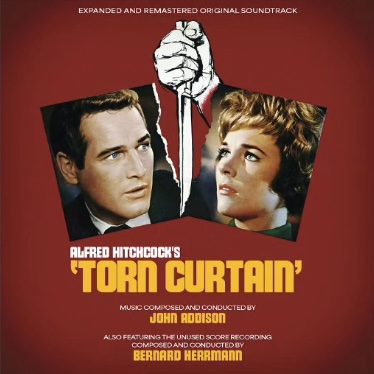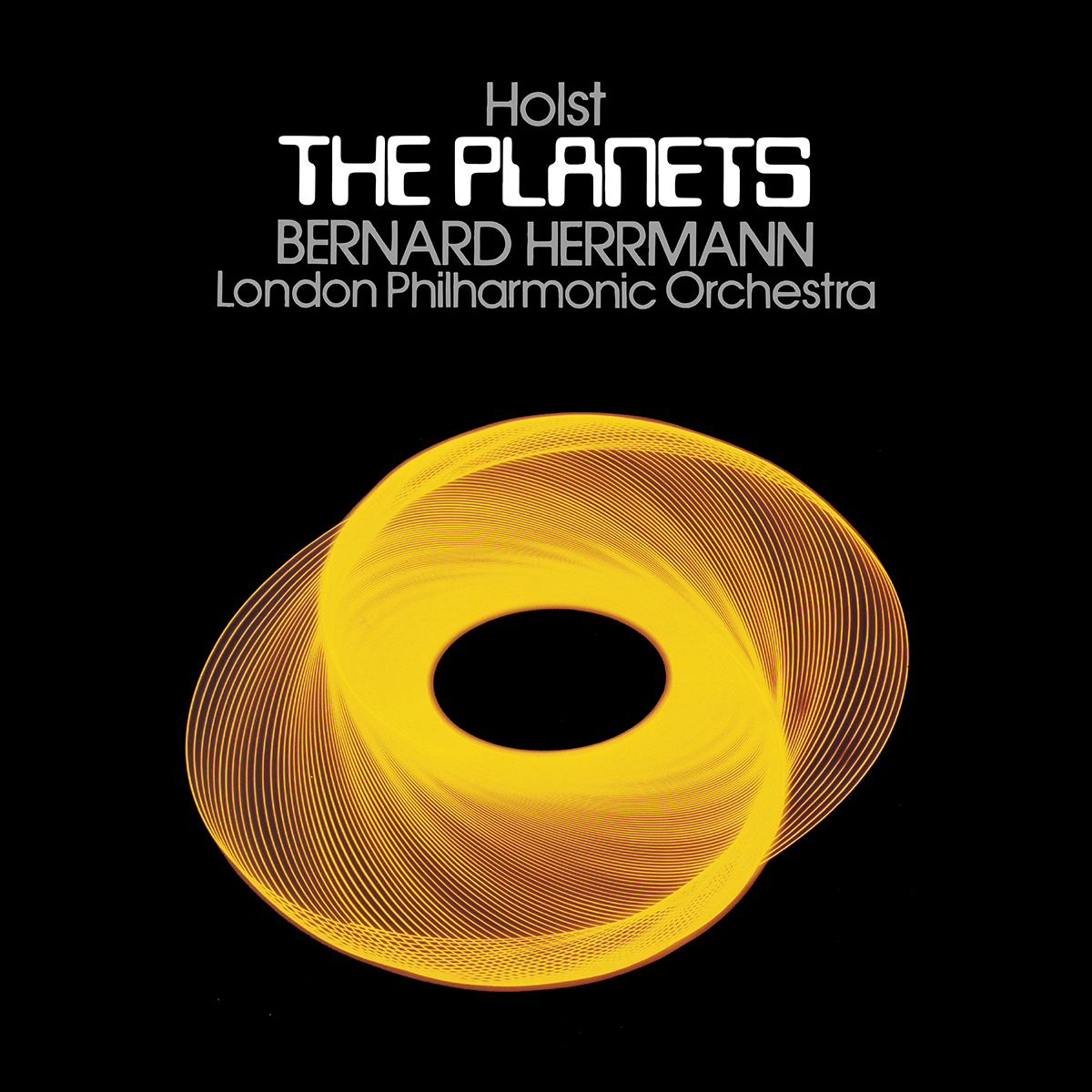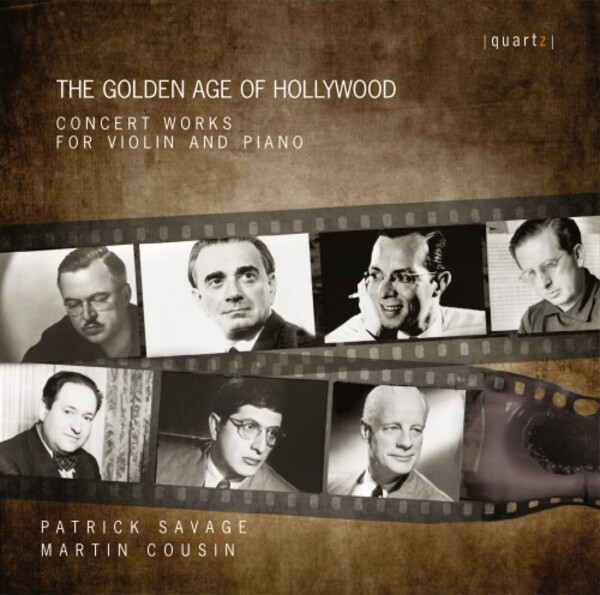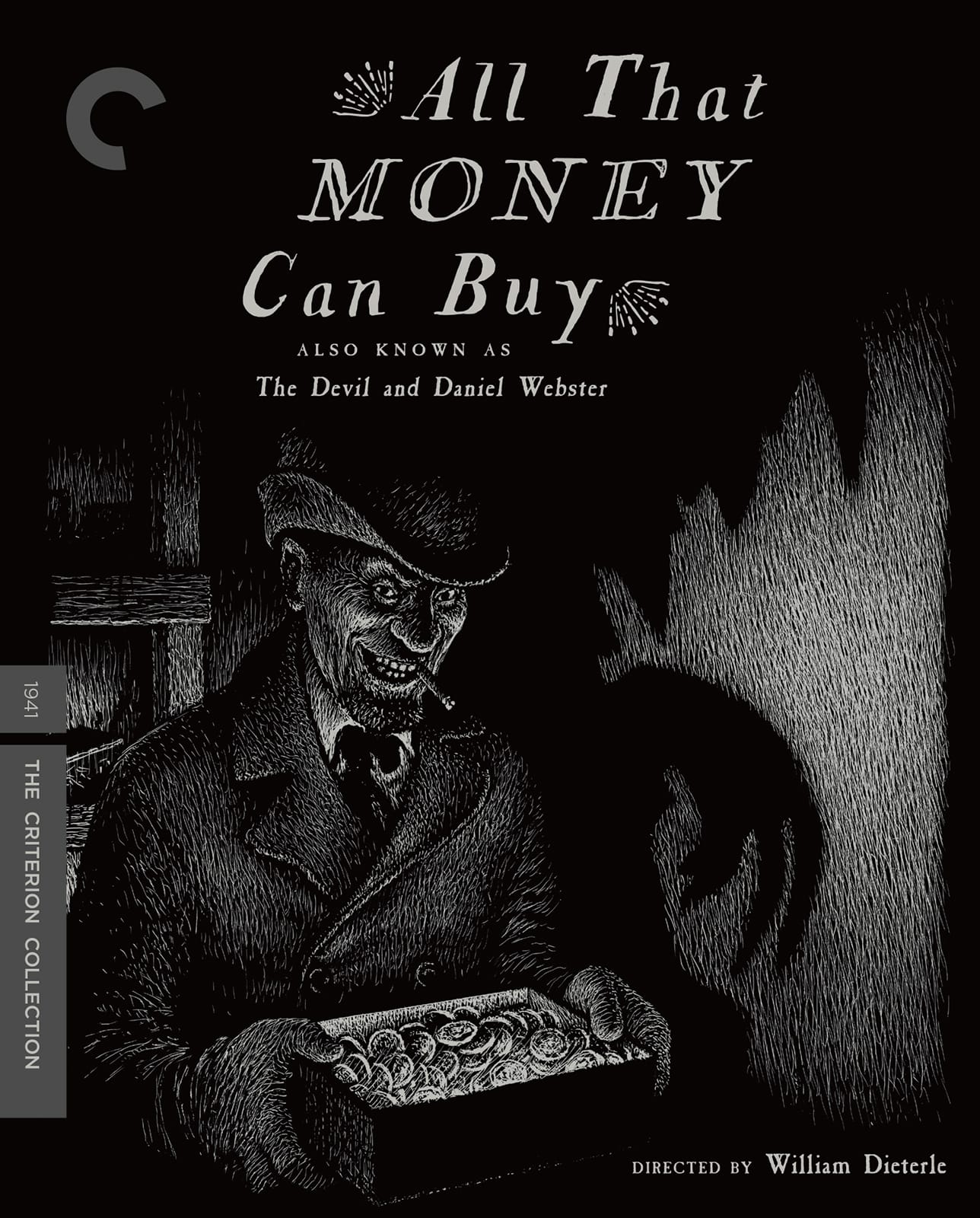As Cynthia Millar recently said “Elmer Bernstein turned 80, but nobody believes it”. In April 2002 Elmer Bernstein indeed got 80, but he shows no signs of slowing down, as he conducted several concerts the last year and just recently scored another hit with Todd Haynes’ FAR FROM HEAVEN. He is the last remaining active film composer of Hollywood’s Golden Age.
Elmer Bernstein was born on April 4, 1922 in New York. In the 1940ies he wrote dramatic scores for the Army Air Corps Radio Shows and the United Nations Radio. That got him the attention of Columbia studios and his first scoring assingments (SATURDAY’S HEROES, etc), but soon the McCarthy era “grey-listed” him to B-movie projects like ROBOT MONSTER and CAT WOMEN OF THE MOON. But all that changed when Cecil B. DeMille hired him to write dance music (and later the whole score) to his comic-book style bible drama THE TEN COMMANDMENTS. During the long shooting time he managed to finally to break-thru with his sensational jazz score to MAN WITH THE GOLDEN ARM, a film that became a major turning point for Elmer Bernstein and Frank Sinatra.
The decade ended with some big pictures like THE SWEET SMELL OF SUCCESS and many Sinatra features (KINGS GO FORTH, SOME CAME RUNNING, etc.). The 60s were perhaps his most successful decade when the old timers Franz Waxman, Alfred Newman, Miklós Rózsa, Bernard Herrmann and so on slowly left the stage to make room for new talent like Jerry Goldsmith, John Barry, Henri Mancini and John(ny) Williams. Bernstein scored high with highly diverse scores: THE MAGNIFICENT SEVEN, TO KILL A MOCKINGBIRD, WALK ON THE WILD SIDE, THE GREAT ESCAPE and THOROUGHLY MODERN MILLIE that got him an Academy Award.
Many scores for John Wayne’s final films like TRUE GRIT and THE SHOOTIST followed. In the 80s new filmmakers discovered him to be able to score comedy films like serious films, generating hilarious comic moments. ANIMAL HOUSE, AIRPLANE!, TRADING PLACES & GHOSTBUSTERS to name a few. The last decade saw him returning to more serious films like MY LEFT FOOT or Coppola’s THE RAINMAKER amongst others. He also became house composer to Martin Scorsese with THE GRIFTERS, the remake of CAPE FEAR, AGE OF INNOCENCE and BRINGING OUT THE DEAD. Just recently he composed the highly acclaimed score to FAR FROM HEAVEN.
Before he became a film composer Elmer Bernstein had a career as concert pianist and since the 1970s he tours the world’s concert halls as conductor of his (and others) film scores. He also wrote extensively for the small screen and documentaries and occasionally he writes something for the concert hall, like the recent “Concerto for Guitar and Orchestra”.
He was a life long friend of Bernard Herrmann since the 50s. Herrmann’s film scores were also a major influence for him, he recently stated that ‘it was listening to Herrmann’s score for ALL THAT MONEY CAN BUY that made me turn my eyes to cinema music.” * On December 28 1975 he held together with Fred Steiner, David Raksin & Norman Corwin the eulogy for his late friend at a church in Hollywood. I was able to talk to Mr Bernstein about his great friend Bernard Herrmann at a small press gathering in London before his 80th Birthday concert in October 2002 with the Royal Philharmonic Orchestra.
“People always ask about influences,” Elmer Bernstein said. “Of course Herrmann would be an influence, Franz Waxman would be an influence. Last night I saw a running [at the National Film Theatre, London] of a film called SOME CAME RUNNING. I listened to my main title, which I hadn’t heard in about 32 years, and I listened to those first notes and said, Jesus that is Bernard Herrmann! I realized where that influence [came from]… stylistically Herrmann.” Audio
“He was very hard to please,” Mr. Bernstein continued. “He was just amazing. He was the only person I know, when he had to do a score he would start from the beginning of the film, like writing a letter, in ink [and] write the score out. It was just extraordinary… he was … the greatest, in my opinion.” Audio
“Early on … in 1955, I had been in Hollywood for about four or five years by then, I was called to do a film at 20th Century Fox by Alfred Newman. It was for a film called THE VIEW FROM POMPEY’S HEAD. A big romantic film and I have never done a romantic score like that before. When I went to the studio I said to Alfred: ‘I am very happy I am doing it, but how come?’ – ‘Bernard Herrmann recommended you!’ I was absolutely stunned! I had met him and was a great admirer of his, but I was completely stunned by that! He didn’t ordinarily do things like that! … I got home that night, and I’ll never forget that call, I called him up and I said: ‘I wanted to thank you.’ – ‘For what?’ – ‘I wanted to thank you for recommending me to do this film.’ So he said: ‘If I didn’t think you had any talent, I wouldn’t have recommended you!’ and hung up the phone!” Audio
In 1991 Elmer Bernstein adapted Bernard Herrmann’s 1962 score to J. Lee Thompson’s CAPE FEAR for director Martin Scorsese’s remake. The effect was remarkable and Bernstein would pair up with Scorsese again on AGE OF INNOCENCE. So would Herrmann have approved of the reuse of his music for CAPE FEAR?
“He’d have killed me, he would have yelled and screamed with no question. But you know something about the score to CAPE FEAR that is interesting … when I called Scorsese and said I wanted to do this job, Scorsese asked: ‘What do you want to do this for? … I am just gonna use the Herrmann music so there is not a lot in it for you.’ I said: ‘First of all I wanted the opportunity to work for you, and secondly I want to protect my friend Bernard Herrmann’.” [laughter]
“What struck me though with great force while I was working on it, was how much more appropriate that music was for the film 30 years on, than it was for the first film. … That first film was not up to the strength of that score. That score is a monument and that first film was flimsy compared to what Scorsese did. Because Scorsese’s film was so depressing … I went around for weeks in a state of depression from working on the score!” (laughter) Audio
“Also I did something else which Herrmann would have hated. As part of the music for scenes for we which didn’t have … appropriate music in the original, we used some of his rejected music to TORN CURTAIN in the score which was also very effective.” Audio
It wasn’t the first time Elmer Bernstein recorded music from Herrmann’s score to TORN CURTAIN. Prior to CAPE FEAR, he conducted a large part of the rejected score for his Film Music Collection in 1977 with the Royal Philharmonic Orchestra. In spite of many other re-recordings, it remains for many to this day the finest re-recording of that magnificent music… So what is so special about Herrmann’s TORN CURTAIN?
“It [TORN CURTAIN] was very brilliant stuff, but it was part of a terminal misunderstanding between him and Hitchcock. Hitchcock wanted a romantic score [but didn't get it], because Herrmann didn’t think like that… The last time I saw him, we had a fight only over one thing. A dear friend of mine, Richard Rodney Bennett, had written a score for a film called MURDER ON THE ORIENT EXPRESS. He had … a bit of a sort of pastiche score. This waltz he did for the train when the train takes off. I thought it was just brilliant. The way I think of other composers work as brilliant is when I say: I wish I had thought of that.” (laughter)
“Herrmann and I were talking about what was going on in music, what have your heard lately and so on… and this a clue to where he went wrong with Hitchcock. I said [what I thought about] what Richard Rodney Bennett did with the train, the waltz and so on… he said: ‘It was ridiculous, that train was a train of death!’ – Oh come on give me a break the Orient Express a train of death? Who could take that film seriously? But he was very intense. That’s the way he saw things. If he would have done it, it would have been a train of death.” (laughter) Audio
Elmer Bernstein’s new own record label “Amber Records” (Bernstein is German for Amber) was set up to re-record several of his rarer film music no other company would be interested in, like music for the films of Ray & Charles Eames. He confirmed that a re-release of the old Filmmusic Collection is in the plans.
“That is part of the plan, yes… The problem is that by now the masters … are very old, sort of half wrecked and [need] some amount of reconstruction…” Audio
Taxi Driver was Herrmann’s last film score. The director of the film, Martin Scorsese, isn’t exactly known for his thru-composed scores, he rather samples from existing sources. But there are exceptions…
“…If you really analyse Scorsese’s career he has only done [thru-composed scores] twice … TAXI DRIVER and AGE OF INNOCENCE. The rest of the time he just had bits and pieces, which he enjoys doing and while composer’s hate it, he is good at it.” Audio
In 1992 Elmer Bernstein conducted the Royal Philharmonic Orchestra for Milan a compilation called “Bernard Herrmann Film Scores” that had several premiers on record like the “Storm Clouds Cantata” from THE MAN WHO KNEW TO MUCH, the prelude from THE WRONG MAN, a suite from THE BRIDE WORE BLACK and the much performed suite from TAXI DRIVER a.k.a. ‘A Night piece for Orchestra’. Bernstein performed the TAXI DRIVER suite in Herrmann’s 90th Birthday year 2001 at the prestigious BBC Proms with one of the world’s greatest sax players, John Harle.
Like most of the suites Christopher Palmer, who also masterminded the whole album, arranged it. Palmer was the driving force behind many film music and classical releases. Composers as diverse as William Alwyn, George Dyson, Dimitri Tiomkin, Ralph Vaughan Williams, Miklós Rózsa, Malcolm Arnold, Bernard Herrmann, Arnold Bax, Franz Waxman and William Walton, amongst many others, would have a major gap in their recorded music catalogue without the efforts of Christopher Palmer.
In the 1970s Palmer worked closely with Miklós Rózsa, Bernard Herrmann and Elmer Bernstein.
“Christopher Palmer … I’ll always count as one of the very best friends I ever had, personally. He was a great delight; he was of course probably the greatest orchestrator who ever lived. He is one of the people that never stop learning… During recordings Christopher was always out there talking to the musicians, how they did things. He was just an amazing man He was a very dear friend to me and the whole family. He came and visited us a lot in the United States. He was a very, very serious loss both to me personally and I think to music… He was more than a friend to film music … It’s such a shame he is not here. [My] Concerto for Guitar and Orchestra has a dedication subtitled ‘For Two Christophers’ That’s for Christopher Parkening and Christopher Palmer, who very much wanted me to write this piece.” Audio
“The last time I saw [Bernard Herrmann] it was toward the end of his life here in London, he was living in London at the time, and I had just done a re-recording of his music from THE GHOST AND MRS MUIR which I had to go and play for him. And I was terrified because … he could be terrifying and irascible and I hadn’t seen him for years and I figured ‘Oh god this is going to be awful’. But he was very nice, he had about six months to live at that point and he was sort of infirmed. But we had a great time and we sat around and all he wanted to do is to reminisce about his old friends. How is this one, how is that one, etc. …
We were supposed to have a meal the day after the recording [of TAXI DRIVER]. Instead of having a meal with him I did the eulogy at the service. He died in the night… We were good friends, when he wasn’t yelling at me for some reason.” (laughter) Audio
* Katzman, Lisa: “DeMille to Scorsese, Elmer Bernstein Has Scored Them All“, New York Times, Nov. 11 2002.
Special thanks to Cathy Mouton, Tim Andrews and Elmer Bernstein.






![The Man Who Knew Too Much – 4K restoration / Blu-ray [A]](../../wp-content/uploads/2023/11/TMWKTM-4K.jpg)
![The Bride Wore Black / Blu-ray [B]](../../wp-content/uploads/2023/07/BrideWoreBlack.jpg)
![Alfred Hitchcock Classics Collection / Blu-ray [A,B]](../../wp-content/uploads/2020/07/AHClassics1.jpg)
![Endless Night (US Blu-ray) / Blu-ray [A]](../../wp-content/uploads/2020/03/EndlessNightUS.jpg)
![Endless Night (UK Blu-ray) / Blu-ray [B]](../../wp-content/uploads/2019/12/ENightBluRay.jpg)





